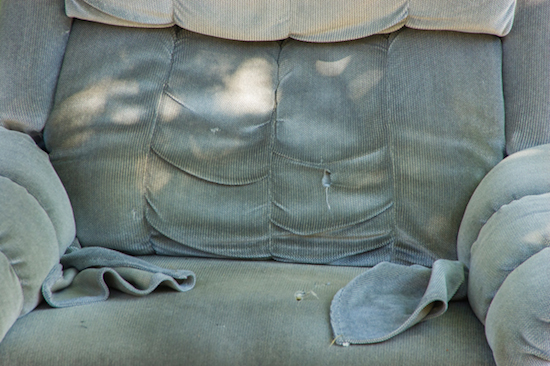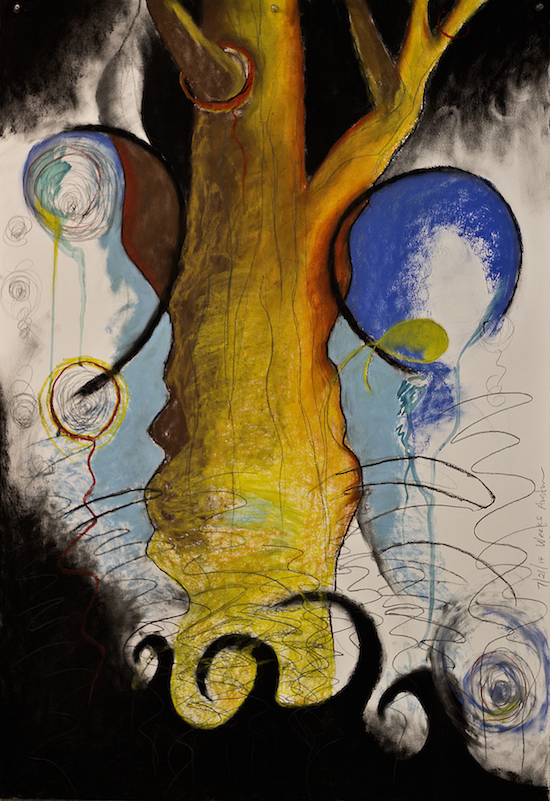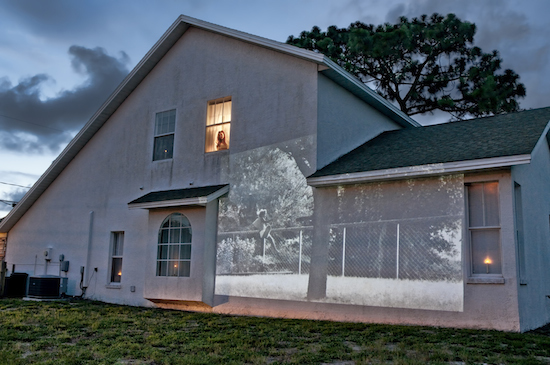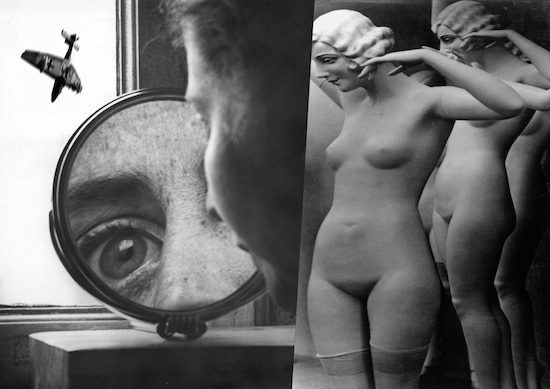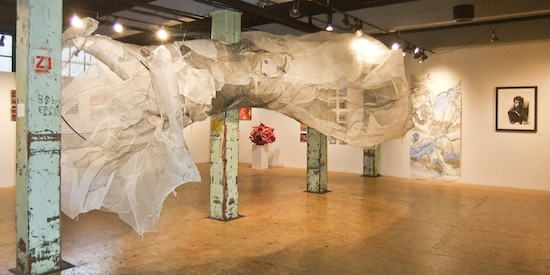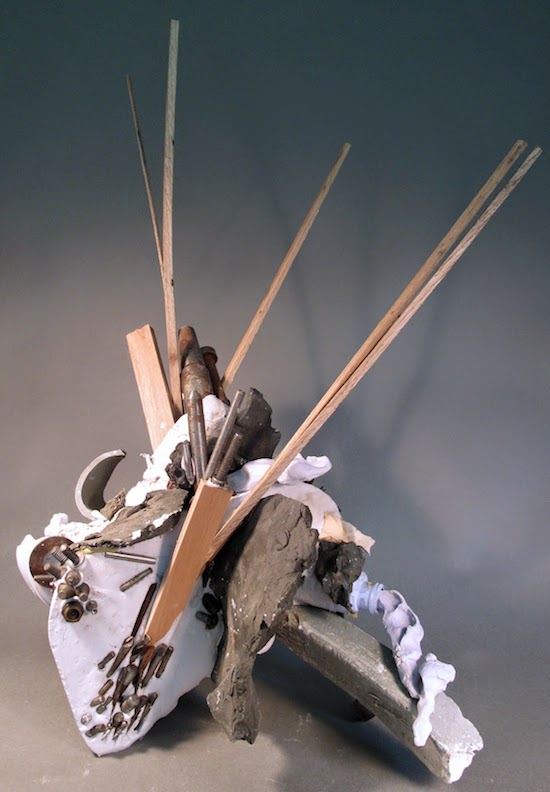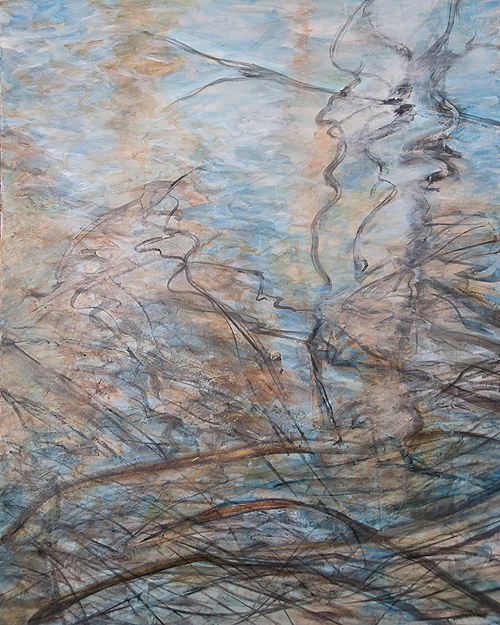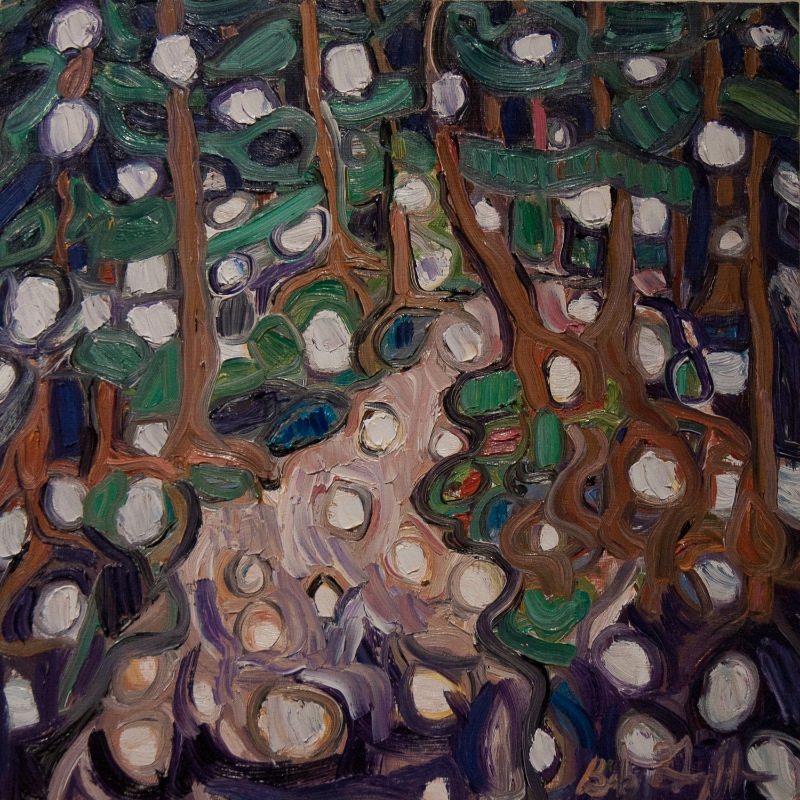
Secrets of roadside chairs
"Superior Comfort, ''by MARIE CRAIG, in her "Around the Curve'' show - a series of photographs of chairs left by the side of the road. It will run May 14-June 7 at Fountain Street Fine Art, Framingham.
She says: "When it hits the curb, a chair is at a turning point. Part detective story, part social history, each chair holds many secrets. The chair also serves as a metaphor for all of the things we admit into our homes, and tells the story of consumption and disposability.''
For some reason, this reminds me of my mother's irritating habit of leaving old furniture, some of it Victorian and, we learned later, to become quite valuable, on the side of the road to be picked up by junk collectors in our semi-rural, seaside neighborhood.
I remember one day seeing a collie curled up very comfortably in the sun on one of the old sofas that my feckless mother had left at the curb.
Few if anyone in our town leashed their dogs, who often attacked people -- especially postmen -- and killed chickens on the farm across the street. That led to a potentially dangerous encounter between my father and the infuriated gentleman farmer, Mr. Dean, after our vicious (to other animals, including human strangers) Rhodesian Ridgeback mix raided the coop.
They both had guns, and I think that Mr. Dean was close to using his -- on our dog and my father.
(Come to think of it, pretty much everyone in our neighborhood had guns -- usually 22's and shotguns. There were also quite a few service revolvers around.)
-- Robert Whitcomb
Return to old reading
"Well Read'' (photo archival print mounted on board and overlaminated), by BOB HESSE, showing at Fountain Street Fine Art, Framingham, Mass.
I have had a little free time lately and have rediscovered the joys of reading musty old books left on the bedside tables of friends' houses and apartments, in book-sale rooms in libraries and even on the street. While I can still appreciate the likes of The Magic Mountain and many other long literary masterpieces (if reminded to do so), I confess that a well-wrought middle-brow novel (probably about "intelligent people'' with domestic conflicts in the suburbs or parts of Manhattan) with enough heft to get through a three-hour flight or part of a sleepless night will suffice.
As you get older, time circles back on you and you want to reread what you read in long summer weekends more than half a century before, interrupting your reading every few minutes to look at the puffy clouds in a blue sky and the lush greenery below your window while smelling the rich mixed aromas of lawn-mower gasoline and wet cut grass. From time to time, there's the shriek of a kid in the background, usually indicating happiness but sometimes a minor injury, usually inflicted by a sadistic child.At my rate, I'll be rereading the Doctor Doolittle series in no time, after returning to C.S. Forester's naval novels, set during the ever-popular (among readers of history and fiction) Napoleonic wars.
Meanwhile, our great throw-out of old, asthma-inducing paperbacks stashed in the cellar continues. No one will read any of them again.
Comment via rwhitcomb51@gmail.com
